
Three years ago on October 24th 2017 I photographed two protests over stories that have come back into the news in recent days.
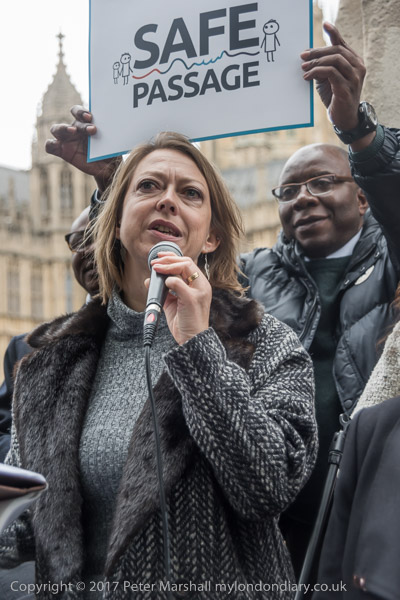
This 9th October the House of Lords voted 317 to 223 for an amendment to the immigration bill proposed by Lord Alf Dubs and three other peers to ensure that rights under UK law to family reunion guaranteed under the EU’s Dublin III treaty continue after the transition period. The government used its House of Commons majority to overturn the amendment and it returned to the House of Lords on 21 October. The Lords on 21st October again backed the amendment by a majority of 78, the fourth defeat for the government over attempts to ensure lone child refugees maintain the right to be reunited with their families in the UK. The government will probably use its majority to again strike out the amendment and demonstrate yet again how little they care for others.
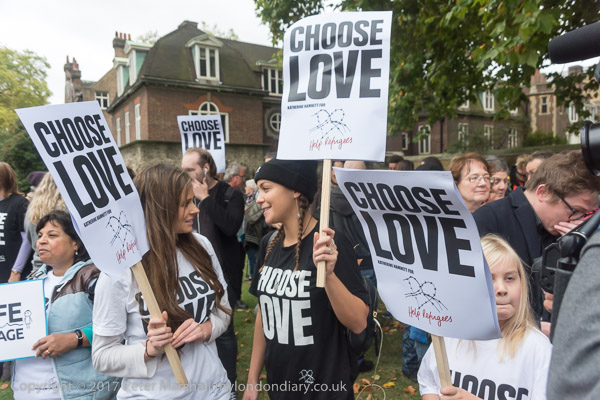
Back in 2017, Safe Passage were protesting at the Home Office’s dragging its feet in carrying out their obligations under Dublin III and the previous Dubs Amendment passed in May 2016 to act “as soon as possible” to relocate and support unaccompanied refugee children in Europe. It took four years until May 2020 for the 480 places provided for under this scheme to be allocated and the children allowed to come here. The government then announced it had ended the scheme and had no plans to allow any of the thousands still stranded in Europe to come here.
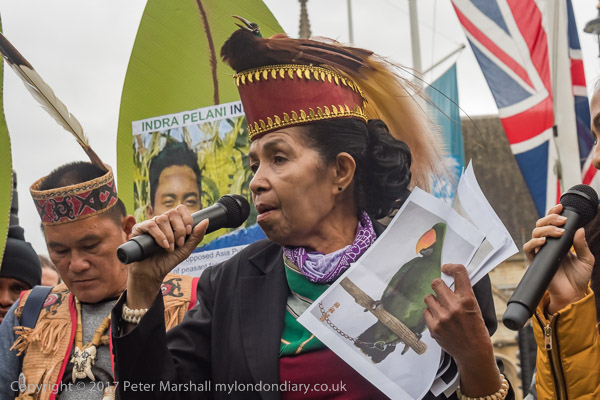
The second event on October 24th 2017 was a rally by indigenous leaders Guardians of the Forest from Latin America, Indonesia and Africa, on their way to the COP23 UN Climate Change Conference in Bonn, arguing that the continuing maintenance of the forests by their indigenous inhabitants is vital in the fight against climate change, and that the clearance and devastation has to be stopped.
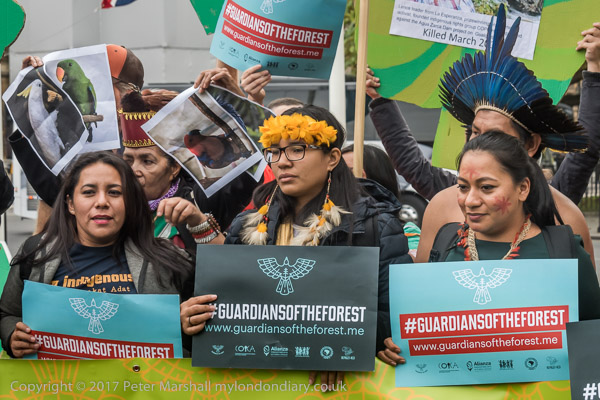
This year, Monday 12th October, known to some as Columbus Day, was celebrated in America and around the world as Indigenous Peoples’ Day. Although first proposed in 1977 and recognised in the 1980s, this year saw a huge leap in its profile, with a US wide billboard advertising campaign featuring work by over 50 artists in what was called ‘The 2020 Awakening’.
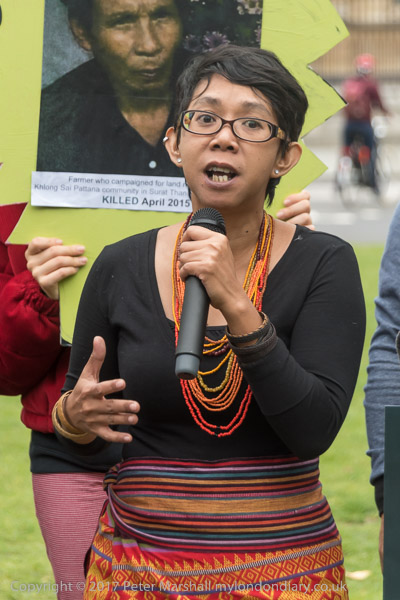
Among the indigenous leaders speaking out on climate change is Ugandan activist Vanessa Nakate, who made the news earlier this year when she was cropped out of a photo showing Greta Thunberg at Davos. It made her realise that not just her but the whole of the majority world gets ignored by media coverage. She strongly makes the point that “The Global South is not on the front page, but it is on the front line,” already suffering from the effects of climate change.
At the start of October 2020 Time magazine named Nemonte Nenquimo from the Waorani people of Ecuador of its 100 most influential people of 2020. There is a longer interview with her on Huffington Post.
Facing the climate crisis we need to learn how to live on the Earth in ways that are sustainable and work with nature rather than destroy it. As Nakate puts it:
“People always say that it is hard for human beings to adapt to new ways of living, but the pandemic has shown that we can.”
“If we want a future that is liveable and healthy for everyone, it has to be sustainable, it has to protect the people, it has to protect the planet.”
Vanessa Nakate – Euronews.com
Tags: Alf Dubs, climate change, deforestation, forest clearance, Guardians of the Forest, indigenous, indigenous leaders, Indigenous Peoples’ Day, lone children, Nemonte Nenquimo, racism, refugee children, refugees, Safe Passage, Vanessa Nakate